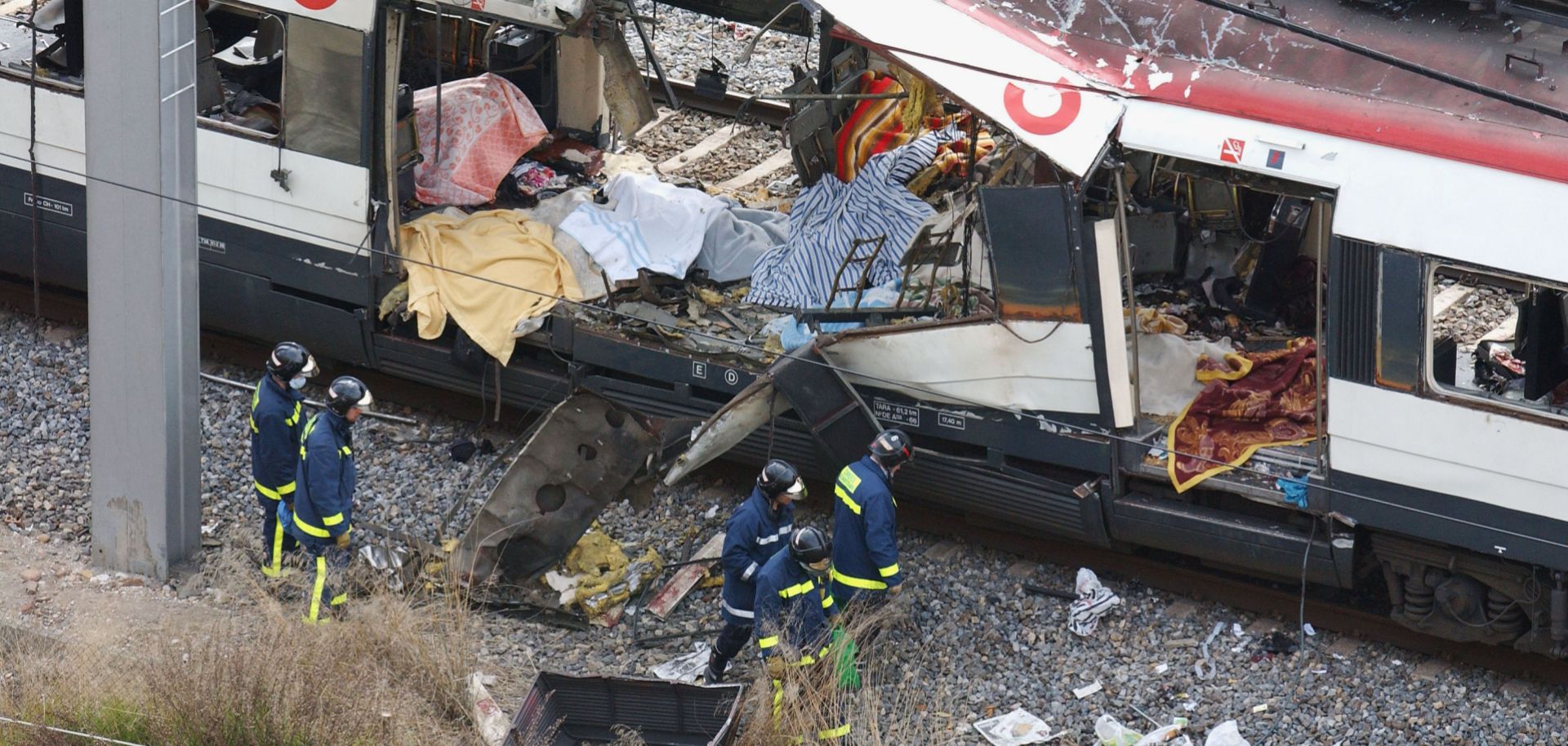ASSESSMENTS
How Do Terrorists Measure Success?
Sep 22, 2017 | 09:00 GMT

Rescue workers search a commuter train on March 11, 2004, after it was devastated by multiple bomb blasts during the morning rush hour in Madrid, Spain.
(Getty Images)
Highlights
- Terrorist attacks are strategically most significant when they put pressure on fault lines and have a relatively narrow objective.
- A combination of tactical proficiency in terrorist skills and strategic vision is rare — and extremely dangerous when effective.
- The role of counterterrorism is not only to stem the damage to human life and property, but also to prevent attacks from upending the political order.
Subscribe Now
SubscribeAlready have an account?
